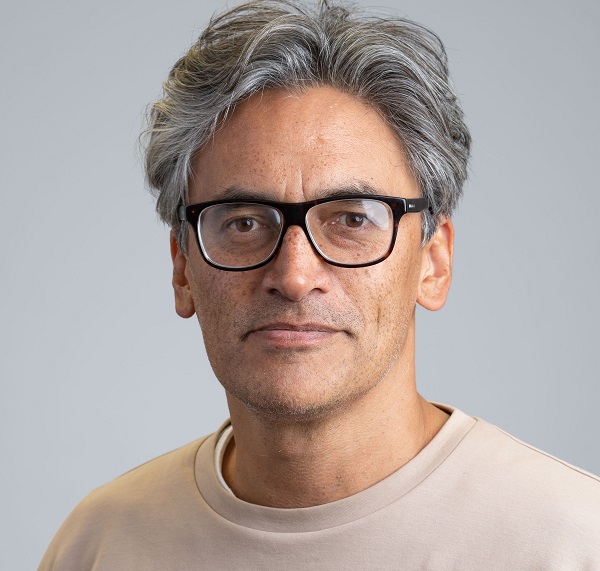Associate Professor Andrew Erueti (co-convenor)

Ngā Ruahinerangi, Ngāti Ruanui (Taranaki), Ati Hau (Wanganui)
Andrew Erueti is an Associate Professor of Law at the University of Auckland. Andrew’s primary area of research is in indigenous customary law and legal pluralism, and indigenous peoples’ rights in domestic and international law. He is the editor of the book International Indigenous Rights in Aotearoa New Zealand. He also has an interest in indigenous rights in the context of natural resources, criminal justice and child welfare. Andrew is a member of the Royal Commission of Inquiry into Historical Abuse in State Care and in the Care of Faith-Based Institutions.
Q. Why did you choose to join the panel?
Seven years ago, I came back from overseas with my family and moved to Auckland. It struck me as a very cosmopolitan, diverse city, and the way we’re likely to be living in the future south of the Bombay Hills. It was also evident that it was a city of division; North and South, the haves and have-nots. I think we’re a great little democracy, but we have a lot more work to do to see it working well across all the communities in our society. Plus it presented the opportunity to work with the great people working on our panel and with Lowell, who is such a trailblazer for Māori and Māori women.
Q. What do you bring to the panel?
Growing up, my family moved around a lot throughout the South Island mostly, so I had a lot of new starts at a lot of new schools.
My father was from Taranaki, and left home at 14 as there wasn’t a lot of employment there. He worked on hydro projects, mainly in the South Island where my mother is from, and our family moved about a lot with the mobile Māori workforce from one project to the next. Being both Māori and pākehā, with this nomadic life made me aware of the precarious nature of our life sometimes. For example, how dependent we were on getting well paid work and how difficult it could be to find good, stable employment. I watched my Mum work hard and long hours, with little to show for it at the end of the day. We were all proud and had a good upbringing, but we knew we were different from some of the other kids at school, who were the children of the farmers and engineers.
Much later at law school, I learnt about the Treaty and history and that includes the history of raupatu, or land confiscation in Taranaki where my Dad is from. After graduating I went to work for my iwi, and got to understand the impacts of land confiscation and land claims, and that set me on the path to the work I do today.
Q. If we don’t take greater consideration of fairness in our society, where is the future likely to drive us?
Most kiwis share common values of fairness and equality. Although, it doesn’t always play out in real life and present in ways we might expect it to. As a country, we’ve subscribed to and ratified human rights treaties – but we have to ask ourselves whether we’re meeting those aspirations? It pays to look a little closer to see whether what we’re doing in practice measures up to our shared values and expectations.
As a panel, I’d like us to find ways of talking about our society and fairness without losing people along the way – as a society, we have a common goal yet how do we explore this without alienating people? For example, I think my relatives down South, on my Mum’s side, don’t know much about land confiscations and the impact that had on my father’s life. But I don’t want to ram it down their throats either because I know they have their own struggles.
Q. Are there grounds for optimism?
Look at the Treaty Settlement process – it’s remarkable, not perfect, but something we should be proud of it. Many other countries simply don’t have a historical claims process. Through courage and conviction, and the support of both Māori and pākehā leaders, we achieved something quite unique. We all benefit – tribes with a sound economic base can begin to address issues of health, justice and education. Seeing the fertile ground for these gains makes me think, if we can make great gains in this space, then why not others, like gender, disability and mental health, LGBTI, childhood poverty and Pacific peoples.
Read expert commentary: A fair go for Māori by Andrew Erueti
Associate Professor Andrew Erueti
As a country, we’ve subscribed to and ratified human rights treaties – but we have to ask ourselves whether we’re meeting those aspirations? It pays to look a little closer to see whether what we’re doing in practice measures up to our shared values and expectations.
